Artist Myron Curry’s MAC murals yet to be unveiled to public
Just as Seattle Central had preemptively closed its doors amid the COVID outbreak, artist and Seattle Central student Myron Curry had completed two murals for the bottom floor of the Mitchell Activity Center (MAC). The two commissioned murals, completed in March 2020, have yet to see the light of day.
Since joining the Student Support Re-entry Program in 2018, Curry’s presence and contributions were quickly felt by Seattle Central staff. “Myron came to Student Support upon getting out of prison and wanted to complete his education. After the first day, Myron felt so comfortable he returned every day and became the front face of our office,” says Molly Mitchell, Director of Student Support Programs. “He has made it his mission to ensure that every student who comes through our office feels heard and cared for – he has become the heartbeat of our office.”
The Student Support Programs center provides services to those faced with unique social and economic hardships that naturally inhibit and dissuade educational pursuits. A wide range of assistance is offered, including childcare support, a food and resource pantry, and emergency funding. The program also provides direct support and resources for veterans and for those formerly and presently incarcerated.
“Every person that I’ve met, the relationship has blossomed into family; it was a great start to building community and friendships,” says Curry, who was formerly incarcerated for nearly 15 years before attending Seattle Central College. “The first day I went to student support they were so nice; I was a little creeped out. I didn’t have anything that they wanted from me and realized that they were just genuinely trying to help.”
Early into the program, Mitchell learned of Curry’s remarkable talent for painting and introduced him to Ken Matsudaira, curator of Seattle Central’s art gallery. “He had shown her his work and she immediately recognized his talent,” says Ken Matsudaira, curator of Seattle Central’s art gallery. “I was immediately impressed with his abilities and started thinking of ways to get his work seen.” The two worked together to select specific pieces of Curry’s extensive collection to show at a solo exhibition during summer quarter 2019. “As we looked at his images, Myron’s story began to emerge as he shared details of each piece,” says Matsudaira. “By the time we had selected his works, I knew that we had a narrative of not only Myron’s powerful life, but also a narrative of a community.”
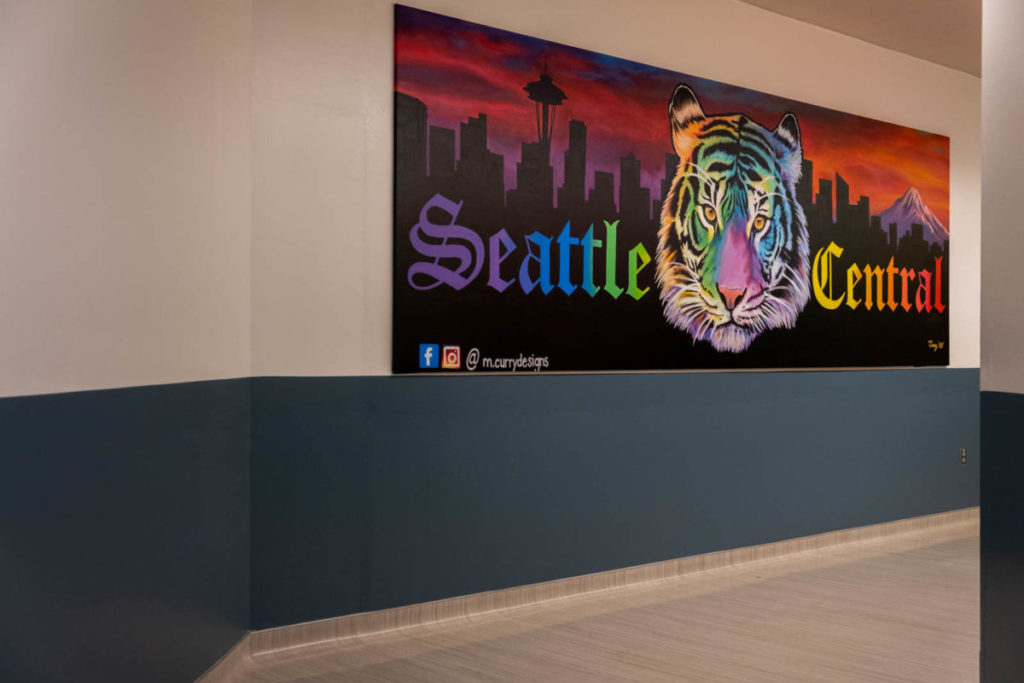
Curry, born and raised in Seattle, has made a conscious, concerted effort to engage and strengthen the community, not only through art, but through generosity and selflessness. “I want to create that kind of space where people have pride and unity in their community, where they have a space to get to know each other.” Curry continues, “the best way to create community is engagement and Seattle Central is investing in themselves and in their community.” Last year Curry was also awarded a Charles H. Mitchell Fund for Excellence. “By helping me, I’m furthering my education, and for you to invest in helping people on their path to do positive things and have a positive impact on the community, helps everybody.”
In early 2020, the MAC’s bottom floor experienced a 25,000 square foot flood, in which numerous repairs and renovations had to be made. After the downstairs halls were painted, the MAC staff felt that some sort of color and vibrancy needed to be added to the walls. “I came to know Myron through Molly Mitchell from Student Support Programs and Ken Matsudaira from the M. Rosetta Hunter Art Gallery,” says Jared Blitz, Director of the Mitchell Activity Center. “They spoke highly of him on a regular basis, I was able to view his artwork, and the MAC was in need of more character in its hallways.”
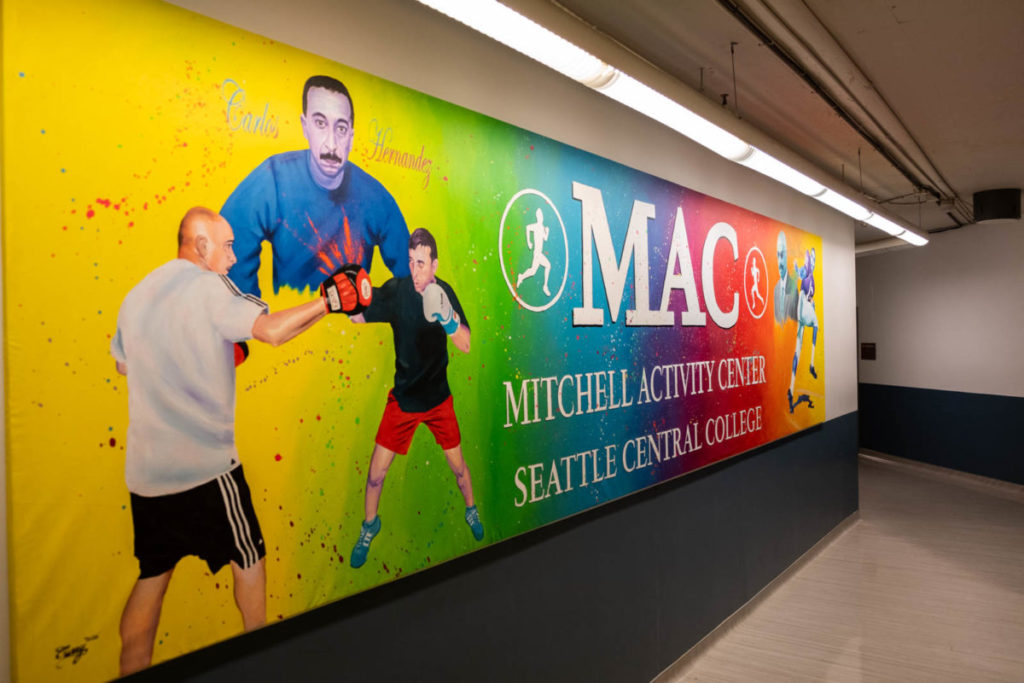
Blitz shared with Curry his aspirations for mural designs, to not only add much-needed color, but to honor two individuals, Charles H. Mitchell and Carlos Hernandez. Hernandez, the MAC recreation supervisor, recently retired after 39 years with Seattle Central, and was chiefly responsible for building the school’s recreation center from the ground up. “Carlos won’t want me to tell anyone, but he was surprised to see a tribute to his 39-year legacy at the MAC on one of [the walls],” says Blitz. “I’m pretty sure it was the first time in his life he cried in public – and by ‘public’ I mean 3 others in a locked down 93,000 sq ft building.”
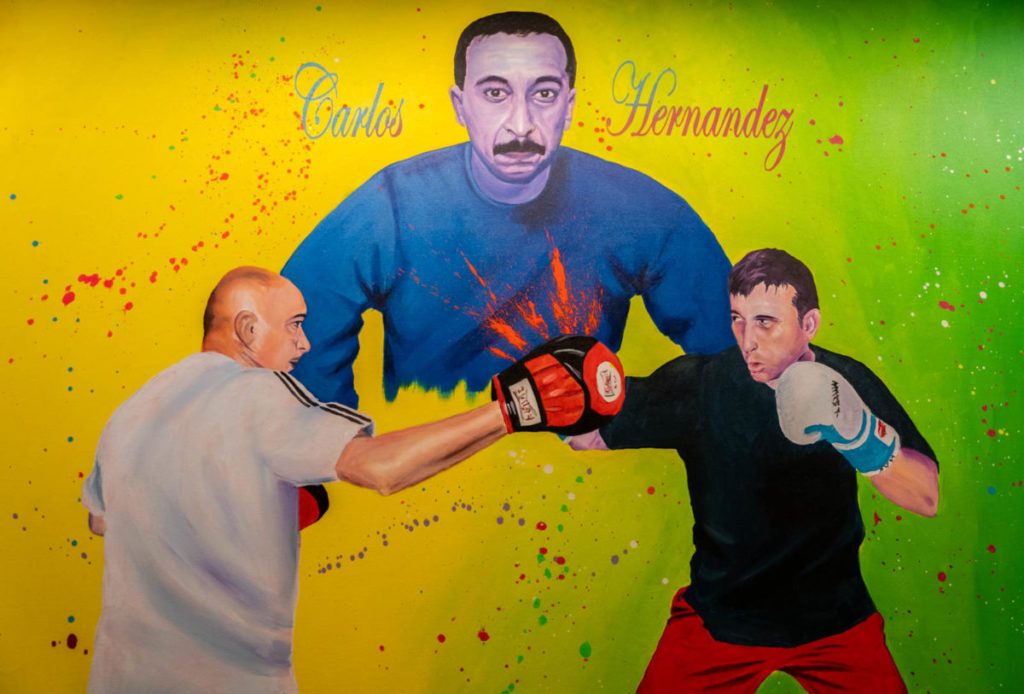
The two murals were commissioned about a month prior to the school’s closing due to the exponential spread of the COVID-19 virus. “He had two very large canvases sitting in his room completed with the hope of delivering them to us not long in the future. A few weeks turned into months,” says Blitz. “The plan was to have a big unveiling with media coverage to honor Charles H. Mitchell, who the building was named after, Carlos, and also Myron’s talent. That still could happen in the future, but it’s slow rolling at the MAC until the pandemic subsides.”
The collaborative effort between Curry, Student Support Programs and the Mitchell Activity Center speaks to the necessity of not only providing a quality education, but to also forming lasting bonds and a safe place for students to celebrate and explore their latent potential. “Our students will do truly amazing things with the support we can provide,” says Matsudaira. “Myron’s experience has demonstrated how much a little support can mean for a student, and how support can help to amplify pathways for them.”

Curry expects to finish his education with Seattle Central College in summer 2021 and is presently working on several commissioned mural projects outside of Seattle Central College. “I wouldn’t be in school right now if it wasn’t for the support and love I get from the Seattle Central community,” says Curry. “Everybody from financial aid, to student leadership, to student support with Molly, to the art gallery with Ken, to the MAC center with Jared – they’ve been pushing and supporting me every step of the way.”
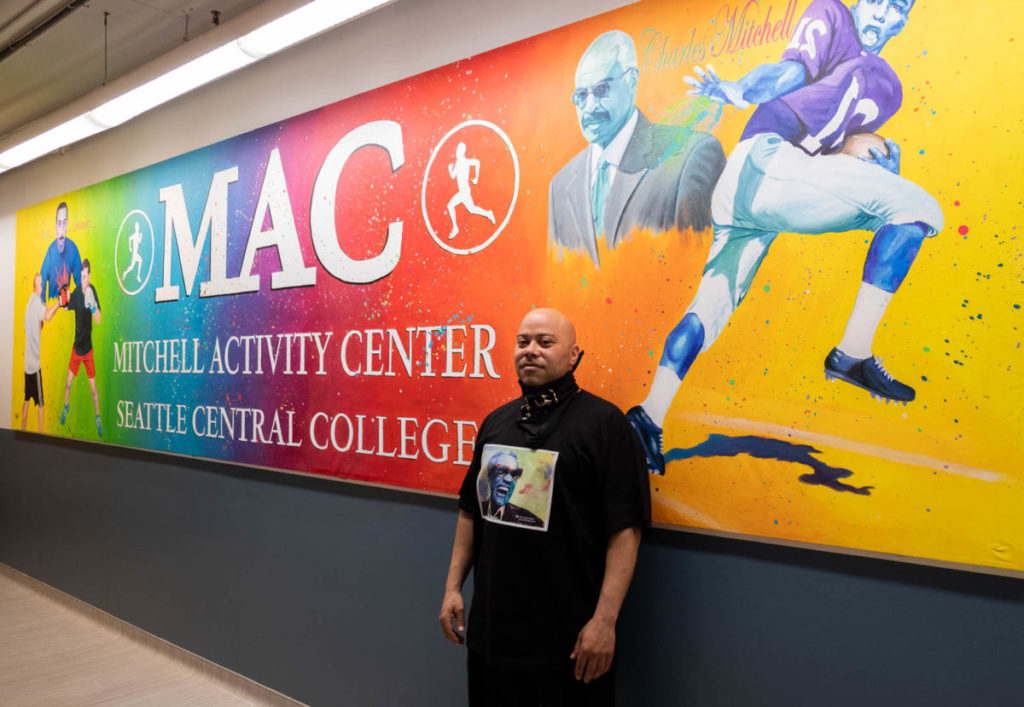
Curry continues to work with Student Support Programs as a peer-to-peer navigator and office assistant, specializing in re-entry. “I would do it if I wasn’t even getting paid,” says Curry. “What matters is to have someone who genuinely cares, that’s trying to help you, that says we’re going to work through this together and we’re going to figure it out.”
For more information and to make a purchase of Curry’s work, please visit: www.mcurrydesigns.com
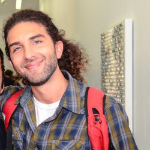
Jordan Somers is currently in his second year of Visual Media at Seattle Central College. He specializes in photojournalism and documentary work, with a particular emphasis on social movements happening throughout the city. His 2020 documentary, Hope is Not Cancelled, was an official selection at the Local Sightings Film Festival, and won an award for best editing at the Oregon Documentary Film Festival. Jordan is an avid traveler when granted the opportunity, and has a keen interest in psychology and existential philosophy.

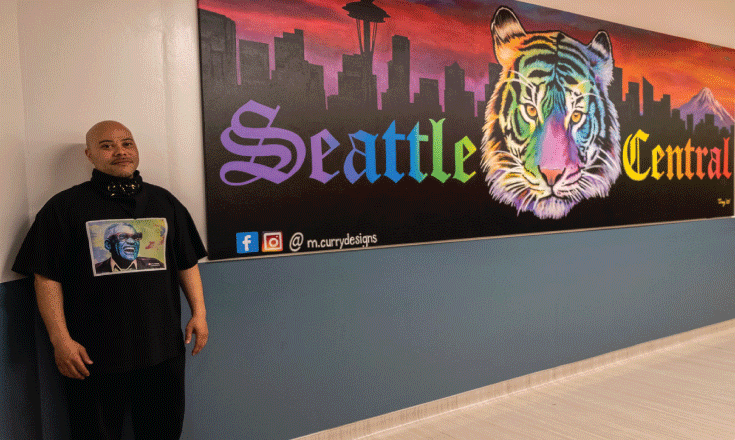

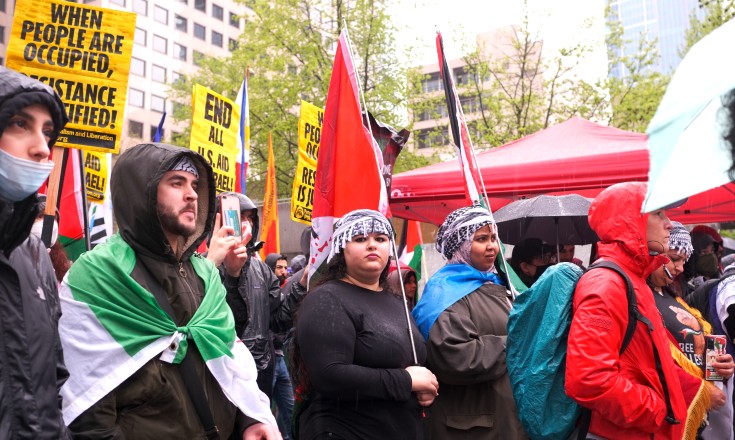
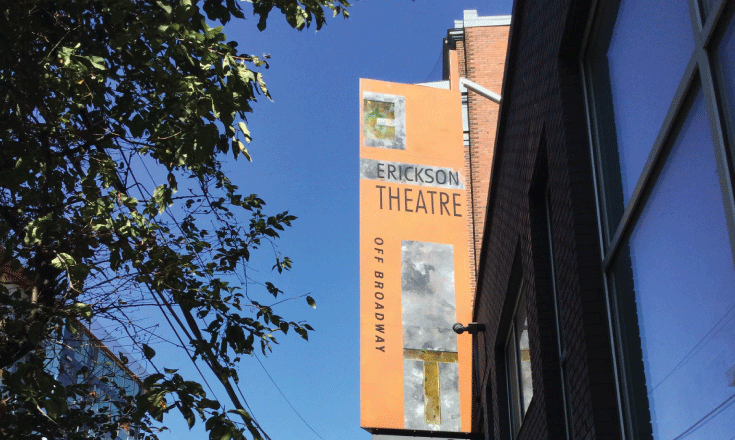

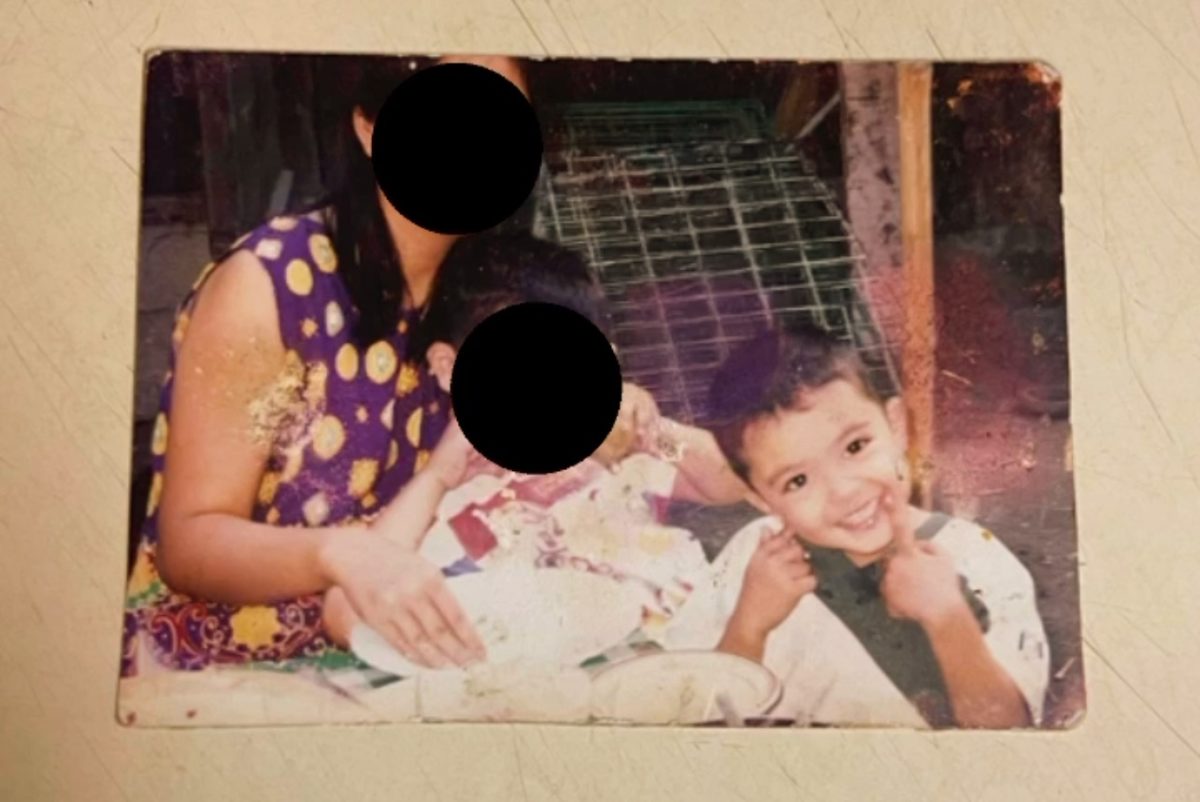

One Comment